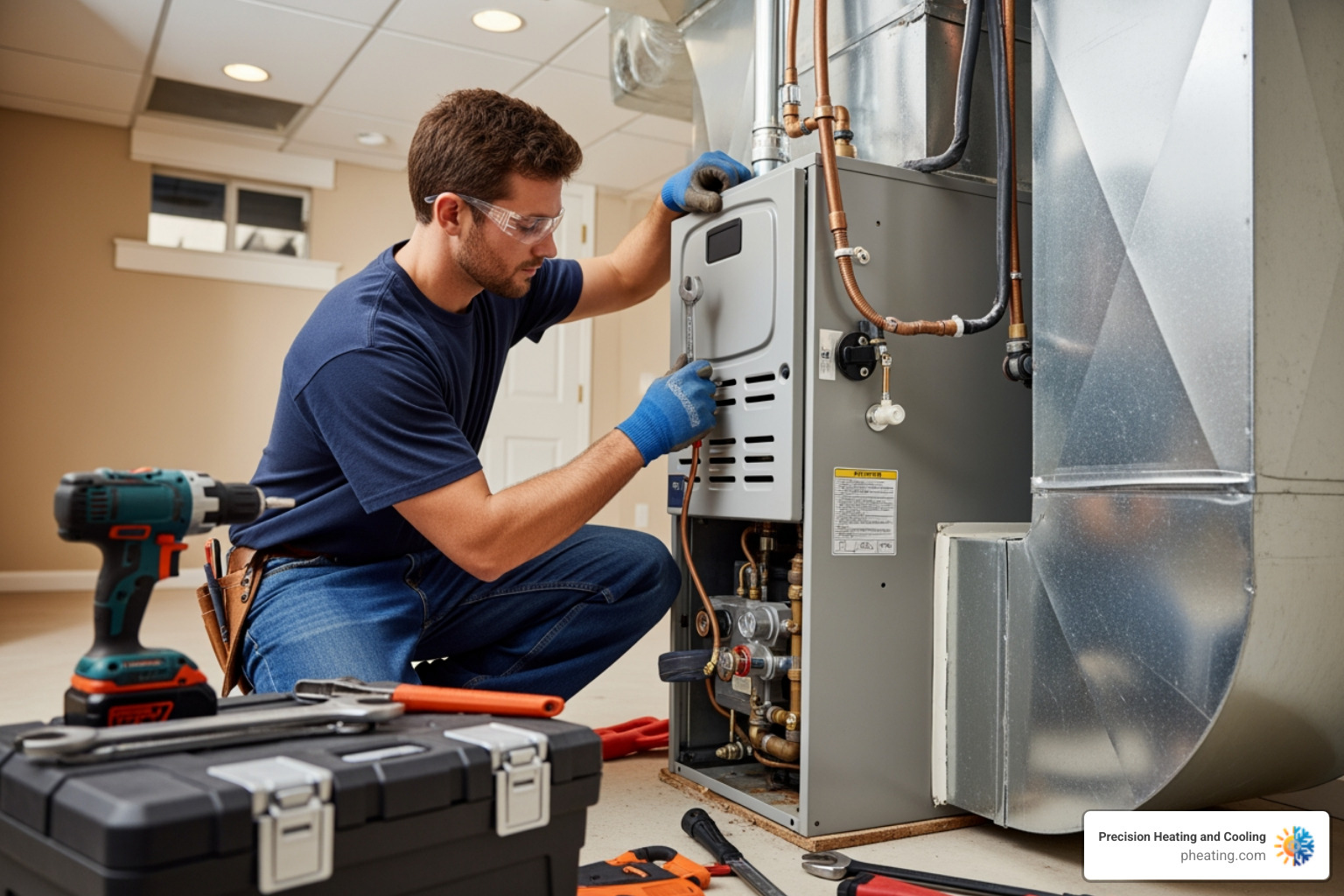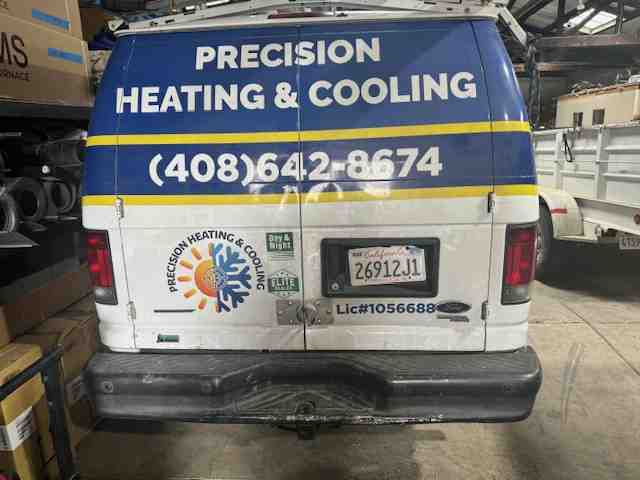Homeowners in Santa Clara depend on their air conditioning systems to keep indoor temperatures comfortable during the summer. When your AC fails to cool properly or stops working altogether, it disrupts more than just your comfort. One of the less obvious reasons for system failure is a faulty AC control board. This important component manages the entire operation of your cooling system, from activating the blower fan to regulating cooling cycles. If the board isn't working right, your AC won’t either.
Many don't realize the control board is even part of the system until something goes wrong. You might just notice your home feeling warmer or cooling turning on and off for no reason. If you’ve had to reset your thermostat more than once lately with no improvement, your control board might be the issue. Knowing how this part of your system works and spotting early signs of trouble can help prevent larger repair bills or complete system breakdowns.
What Is an AC Control Board?
An AC control board is basically the brain of your air conditioning unit. It takes signals from the thermostat and tells different parts of the AC when to turn on and off. For example, when your thermostat senses the room is too warm, the control board activates the compressor and fan. It also plays a part in safety shutdowns. If something goes wrong elsewhere in the system, the board tries to protect the unit from further damage.
Without a working control board, all those signals get mixed up or don’t go out at all. That’s why control board issues can lead to problems that aren’t immediately obvious. It could be bad timing between different components, or your AC could run constantly or refuse to turn on at all. Since this board is electronic, things like power surges, temperature extremes, or buildup of dust and moisture inside the unit can lead to failure.
When this small part breaks down, it affects how the larger system functions. It’s similar to a home Wi-Fi router that keeps dropping the signal. The internet might work sometimes, but not consistently, and every device relying on it becomes unreliable. The AC control board plays a similar role, silently coordinating all components so they work in sync.
Common Signs of AC Control Board Failures
Recognizing early warning signs can help prevent a full system shutdown. While some signs can also point to other problems within the AC system, the following often relate directly to the control board:
- AC turns off randomly or refuses to start
- Uneven cooling in different rooms
- Cooling cycles start and stop too often
- Blower runs when it shouldn’t or doesn’t run at all
- Strange ticking sounds from the control panel
- Visible burn marks or a burnt smell from the unit
- Error codes showing on thermostat or display panel
These symptoms usually appear over time, but sometimes they show up all at once after a big change like a power outage or heatwave. If you notice several of these at once, the control board should be checked by our professionals before it leads to more damage.
Waiting too long increases the strain on the rest of the system. A misfiring board could cause your compressor or fan motor to cycle incorrectly, wearing out those parts faster than normal. That’s how a small electrical issue can turn into a major mechanical failure. Acting early helps you avoid higher repair costs or even full system replacement.
Common Causes of AC Control Board Failures
An AC control board usually doesn’t stop working without a reason. In many Santa Clara homes, failure builds up over time from one or more root causes. Understanding what leads to control board damage can help homeowners stay ahead of the problem and avoid repeat breakdowns.
The most common causes include:
1. Power Surges
A sudden spike in voltage from a blackout or lightning strike can damage the control board. Even small, repeated surges over time can weaken sensitive components.
2. Age and Normal Wear
Like other AC parts, control boards have a limited lifespan. Internal parts wear down, solder joints crack, and connections corrode. As aging progresses, failure becomes more likely.
3. Moisture and Temperature Extremes
Santa Clara summers bring long stretches of heat. AC units placed in garages or near landscape watering systems face added strain from heat and humidity. Moisture inside the unit can lead to corrosion or short circuits.
4. Poor Maintenance
When an AC unit collects dust, pet hair, or debris, airflow is restricted and internal components overheat. Dirt buildup in the electrical compartment can cause wire damage. Neglected filters increase pressure across the system and raise temperatures around the board.
These causes may not look connected to the control board at first, but they help create conditions where failure is more likely. A Santa Clara resident recently shared with our technicians that their breakers kept tripping, and a faint burnt smell came from the garage. They waited until the AC failed during a 90-degree week in July. The problem: a damaged control board due to dust and moisture buildup over two summers without maintenance.
What You Should Do When AC Control Issues Start
When control board symptoms appear, delays can lead to more damage. Taking a few early steps helps prevent stress on the system and gives our technicians a clear start.
Here are simple steps to follow:
- Turn off the system at the thermostat
This helps prevent the electrical damage from spreading.
- Check for error codes
Some systems show codes to give insight on the problem. Write them down if they appear.
- Look and smell for damage
Scorch marks or burnt smells near the control panel can show electrical failure. Do not try to fix or reset anything if this happens.
- Avoid repeated resets
Using reset too often can stress worn parts and worsen the problem.
The control board is not a part that can be swapped out casually. It needs to fit your unit and must be properly programmed at installation. If misdiagnosed, replacing the wrong part wastes money and can harm other components. That’s why stopping use of the AC and waiting for our technicians is the best move. Quick fixes often lead to bigger issues.
How to Keep Your AC System Healthy Long-Term
For long-term AC reliability, consistent care goes a long way. Just like regular oil changes help your car last longer, smaller efforts now help avoid large repairs down the road.
Here’s how you can reduce control board strain:
- Schedule yearly inspections, especially before hotter months
- Replace or clean air filters every 1 to 3 months
- Keep storage items and vegetation away from the outdoor unit
- Address minor cooling issues early
- Ask about upgrading components as your unit gets older
These steps help protect the control board by preventing overheating and minimizing stress from clogged airflow or overworked parts. You don’t need to be an HVAC expert to get better performance. Just watch for small changes, and stay consistent with maintenance.
Maintaining Comfort in Santa Clara Homes
Residents of Santa Clara rely on their AC systems heavily during July and August. Going without cool air during heatwaves can affect sleep, energy levels, and overall comfort. Control board failures can be easy to miss until multiple failures follow. Addressing the problem early makes repairs easier and avoids risk to more expensive parts.
Following a yearly inspection schedule helps catch issues early and give the system a better chance of lasting. Clean filters, good airflow, and regular electrical checks help reduce the wear that leads to deeper problems.
If your cooling system has been behaving irregularly, or your thermostat becomes unresponsive, the control board may be the source. The sooner it’s inspected, the easier it is to prevent costly damage. Our technicians can help you figure out what’s going wrong and provide a repair that gets your home cool again. Prompt action helps protect your investment and keeps your household comfortable.
If your air conditioning is acting up and you suspect a failing control board, it may be time to get expert help to avoid further damage and maintain your comfort in Santa Clara. Precision Heating and Cooling recommends professional AC repair in Santa Clara to resolve the issue promptly. For a quick estimate or to book a service visit, please contact us today.

Flexible payment options to make your goals affordable and stress-free.

Seamless Heater Installation in Clovis, CA: A Local's Handbook

Cool Comfort, Warm Savings: A Local's Guide to Heat Pump Installation in Los Gatos













.avif)










.avif)